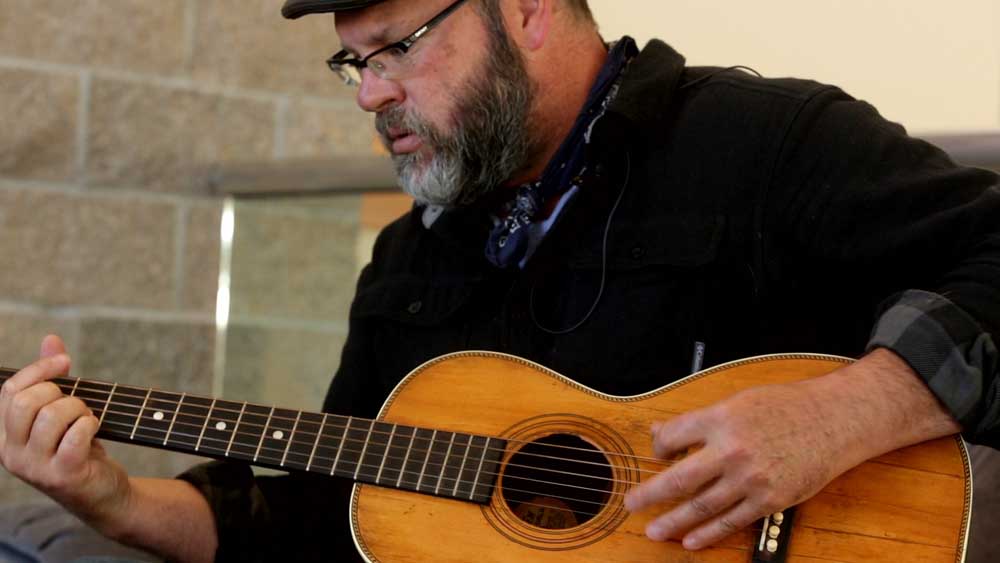Anatomy of a Song: Bill Powers, ‘Who Took the Jukebox?’
Published 12:00 am Thursday, October 27, 2016

- Bill Powers will perform at 5-7 p.m. Thursday at River's Place in Bend.
Artist: Bill Powers
Featured song: “Who Took the Jukebox?”
Upcoming shows:
• Solo at Strictly Organic Coffee Co., 6 SW Bond St., Bend; 3 p.m. Saturday; free
• Solo at Bend Brewing Co., 1019 NW Brooks St., Bend; 7 p.m. Saturday; free
• Honey Don’t at Kelly D’s Sports Bar & Grill, 1012 SE Cleveland Ave., Bend; 7 tonight; free.
• Honey Don’t at McMenamins Old St. Francis School, 700 NW Bond St., Bend; 7 p.m. Nov. 3; free.
Bill Powers is the guitarist, vocalist and chief songwriter in local roots-rock/acoustic group Honey Don’t. Powers and his wife, Shelley Gray, relocated to Bend from Paonia, Colorado, in 2014, bringing the Honey Don’t name with them, and eventually assembled a full band to back their duo performances. The duo has released two albums, most recently 2013’s “Heart Like a Wheel.” “Who Took the Jukebox?” is a new song.
Q: What’s the story inside this song — what’s it about?
A: I play bar gigs and stuff like that, right? So one time I was told that there was no budget — a gig that I had been playing on a fairly regular basis, and the people said, “Well, we can’t have you play anymore; we’re not gonna be having live music anymore. And the reason is because the performing rights organizations are on our backs to pay them what we think is an exorbitant amount of money to be able to host music here at our place. Basically, they’re charging us the budget that we had for music, and they’re threatening to sue us if we don’t pay.” So performing rights organizations are like BMI, ASCAP — I’m affiliated with BMI. Supposedly they’re supposed to be there to help collect money for me if my music is played in various ways that they ideally are keeping track of, or track down on my behalf. But the truth about those things is that the people who really get the most out of being affiliated are the larger artists, because generally that’s usually taken from some sample through radio play on larger stations, larger markets, where music like ours isn’t gonna be played. So we really see very little from BMI in any way. And so through their diligence to collect money on my behalf, supposedly, they end up shutting down a lot of places where I actually could make 100 bucks, or 150 bucks. … That seemed like a good song — good song fodder.
Q: What’s the story behind this song — how was it written, recorded, etc.?
A: I tend to try not to just come right out and just say whatever it is that I’m trying to say through song; that’s sort of the challenge, and that’s the challenge that I try to give myself, and that’s kind of the way I enjoy songs. So I think I kind of imagined this honky-tonkish place where a dude would come in every day. … It’s his regular haunt, and he buys a beer, and with the quarter that’s left over, he goes over to the jukebox and plays a tune. This is his daily routine. So one day he walks in and the jukebox is gone, and this totally messes with his whole world and his reality. So in my mind it’s a honky-tonk song, so that’s how I kind of matched the music.
— Brian McElhiney, The Bulletin






